Finding the perfect pair of running shoes can feel like searching for a needle in a haystack, especially if you have flat feet. But there’s good news! This comprehensive guide will help you navigate the world of running shoes tailored for men with flat feet, along with real-world experiences, expert tips, and product highlights.
Understanding Flat Feet
Flat feet, medically known as pes planus, is a common condition where the arches of the feet are lower than normal or completely absent. This can lead to a range of problems, including overpronation, which can cause discomfort when running or even walking.
What Causes Flat Feet?
Flat feet can be caused by a variety of factors, including genetics, age, injury, and certain medical conditions. For men, the impact of flat feet becomes particularly evident in athletic pursuits, especially running, where proper support is crucial.
The Importance of Choosing the Right Shoes
Choosing the right running shoes is essential for those with flat feet. The wrong footwear can exacerbate existing problems and lead to injuries. Proper shoes can offer support, stability, and cushioning, making your running experience more enjoyable.
How to Choose Running Shoes for Flat Feet
When looking for running shoes tailored for flat feet, consider the following factors:
Arch Support
Men with flat feet should look for shoes that offer excellent arch support. This helps to reduce overpronation and distribute weight evenly across the foot. Shoes with built-in arch support or the ability to accommodate orthotic inserts are ideal.
Cushioning
Cushioning is another critical aspect of running shoes for men with flat feet. Adequate cushioning absorbs impact and can help alleviate discomfort. Look for shoes that provide a comfortable fit with ample padding in the midsole.
Stability Features
Stability features are crucial for runners with flat feet. These features help to control motion and prevent the foot from rolling excessively inward, which is common in flat-footed runners. Look for shoes labeled as “stability” or “motion control.”
Top Running Shoes for Men with Flat Feet
1. ASICS Gel-Kayano 28
The ASICS Gel-Kayano 28 is a top contender for men with flat feet. Combining excellent cushioning with stability, this shoe features Dynamic DuoMax technology for enhanced support. With its comfortable fit and stylish design, it has garnered positive reviews from users worldwide.
Pros:
- Great arch support
- Excellent cushioning
- Stylish design
Cons:
- Higher price point
- May feel bulky to some
2. Brooks Adrenaline GTS 21
The Brooks Adrenaline GTS 21 is well-known for its balanced support and responsiveness. The GuideRails technology keeps excess movement in check, making it a perfect option for those with flat feet seeking stability during runs.
Pros:
- Great for overpronators
- Responsive cushioning
- Durable construction
Cons:
- Could be too firm for some
- Weightier than other options
3. New Balance Fresh Foam 860v11
New Balance’s Fresh Foam 860v11 offers a plush cushioning experience while maintaining stability. Its engineered mesh upper provides comfort and breathability, making it a great everyday trainer.
Pros:
- Soft and plush feel
- Good support for flat feet
- Breathable materials
Cons:
- Not as lightweight as competitors
- Some users report sizing issues
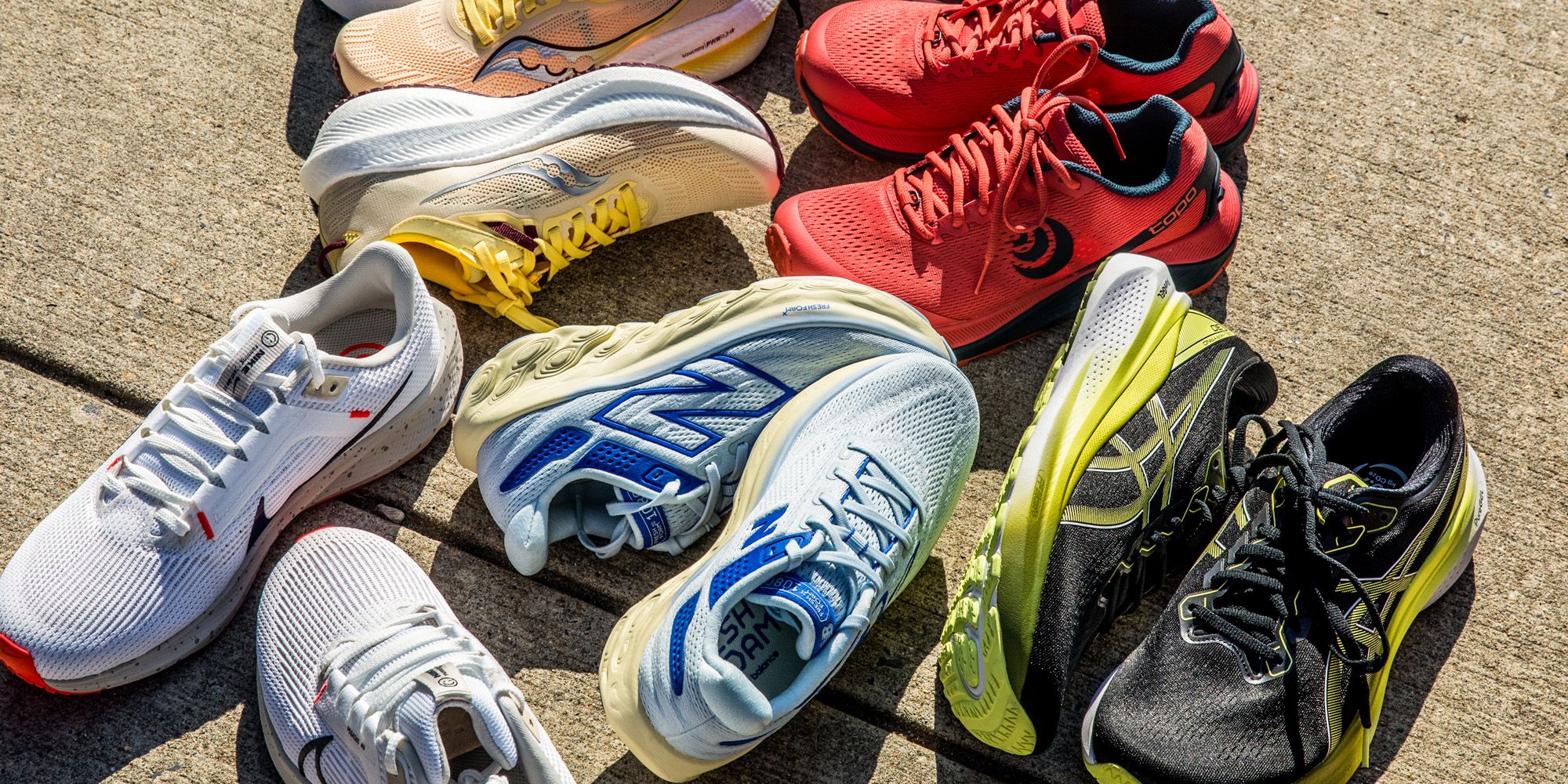
4. Saucony Guide 14
The Saucony Guide 14 delivers a smooth ride thanks to its PWRRUN cushioning. This shoe is designed for stability while offering flexibility, making it suitable for daily training runs.
Pros:
- Quality cushioning
- Responsive and quick
- Lightweight design
Cons:
- A bit narrow for wider feet
- Lacks some premium features
Comparison Table: Top Running Shoes for Flat Feet
| Model | Arch Support | Cushioning | Weight | Price |
|---|---|---|---|---|
| ASICS Gel-Kayano 28 | High | High | 10.5 oz | $169.95 |
| Brooks Adrenaline GTS 21 | Moderate | Moderate | 10.1 oz | $139.95 |
| New Balance Fresh Foam 860v11 | High | Moderate | 10.6 oz | $139.99 |
| Saucony Guide 14 | Moderate | High | 9.5 oz | $139.95 |
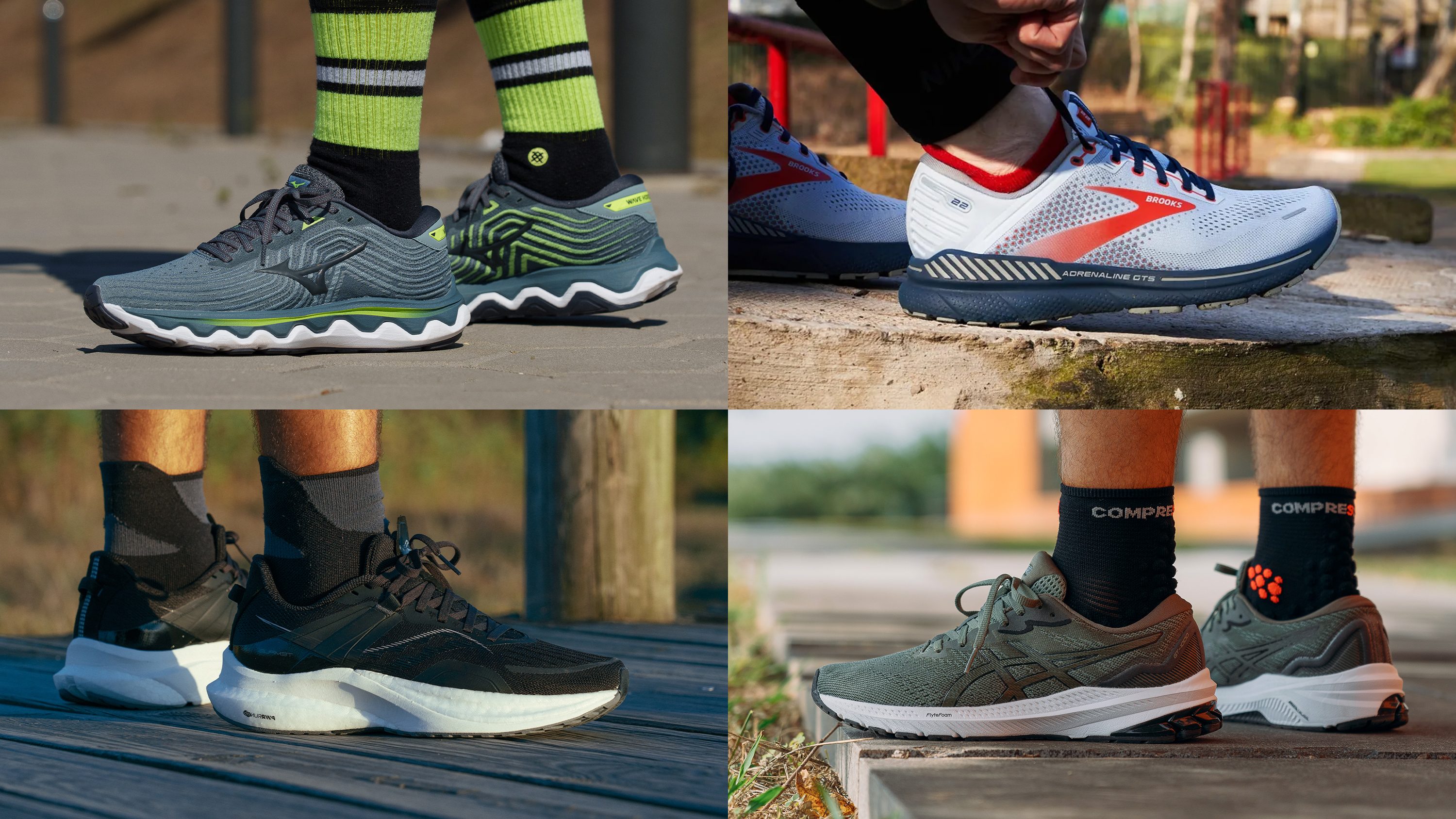
Real-World Footwear Experiences
To understand the impact of proper footwear on men with flat feet, we gathered testimonials from real users:
Case Study 1: John’s Journey with Flat Feet
John, a 35-year-old avid runner, struggled with flat feet for years. After trying various brands, he found relief with the ASICS Gel-Kayano. According to John, “The support and cushioning changed my running experience; I can run longer without pain.”
Case Study 2: Mike’s Stability Need
Mike, who runs several marathons yearly, considered stability crucial due to his flat feet. He opted for the Brooks Adrenaline GTS 21. He remarked, “These shoes offer the stability needed without compromising comfort. They’ve turned me into a much more confident runner.”
Tips for Runners with Flat Feet
To enhance your running experience with flat feet, consider the following tips:
1. Invest in Quality Running Shoes
Quality shoes make all the difference. Avoid cheap footwear that lacks the necessary support and cushioning. High-quality running shoes are durable and can significantly reduce the risk of injuries.
2. Consider Orthotics
Custom or over-the-counter orthotics can provide added arch support and help with motion control. Consult with a podiatrist to determine the best options for your feet.
3. Rotate Your Shoes
Rotating between different pairs of running shoes can help prolong their lifespan and provide varied support. This practice also allows your feet to recover from the repetitive impact of running.
4. Incorporate Strength Training
Strengthening your feet and lower legs can help improve your running form and reduce the impact of flat feet. Simple exercises like toe curls and calf raises can be beneficial.
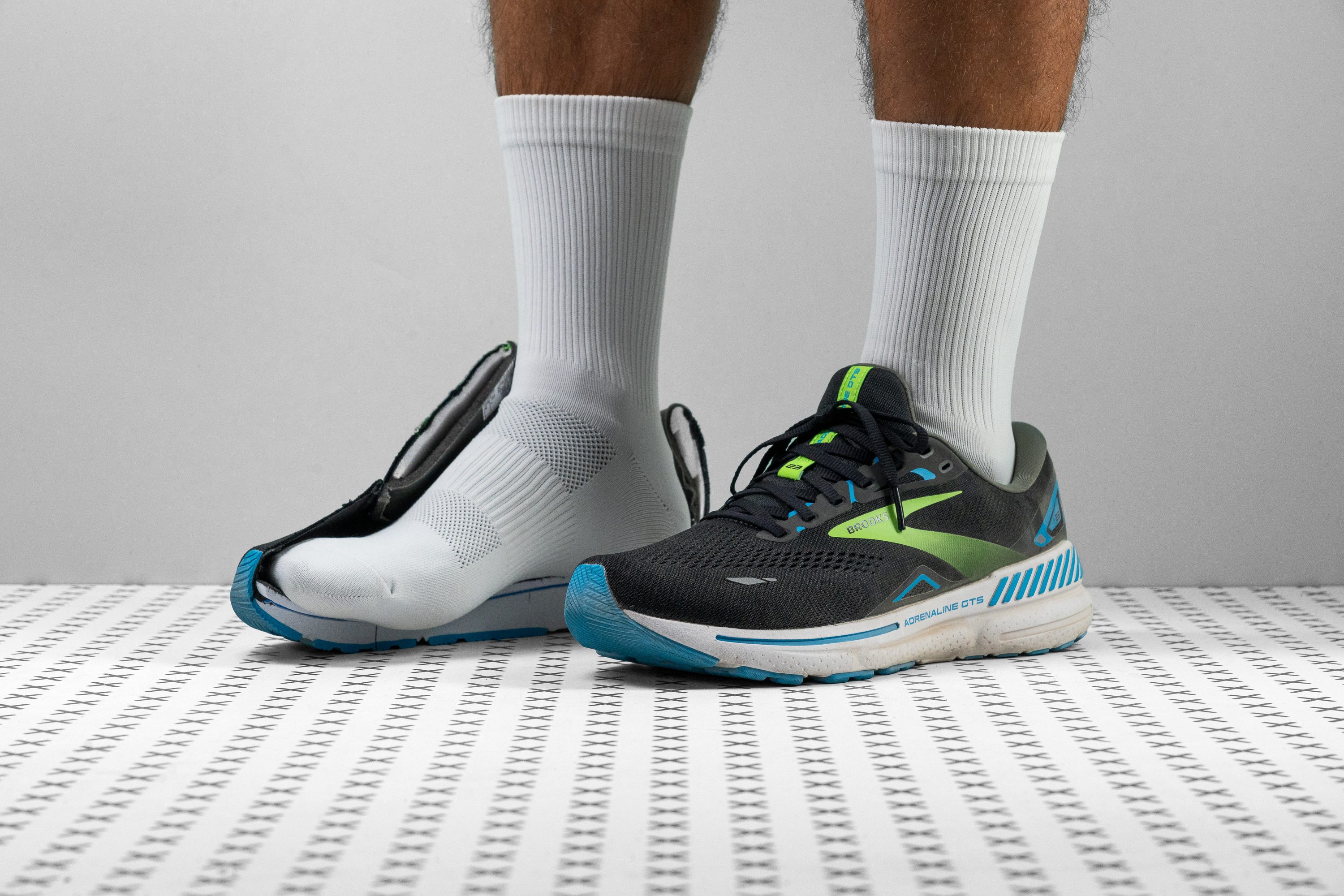
FAQs about Running Shoes for Flat Feet
1. What are the best types of running shoes for flat feet?
The best running shoes for flat feet generally include those with ample arch support, cushioning, and stability features. Brands like ASICS, Brooks, and New Balance are renowned for offering suitable options.
2. Can flat feet run without pain?
Yes, with the proper footwear and possibly orthotics, many men with flat feet can run pain-free. Selecting shoes specifically designed for flat feet can make a significant difference.
3. Do orthotics help with flat feet in running shoes?
Yes, orthotics can provide additional support and help improve ankle and foot alignment, which can alleviate pain and improve performance.
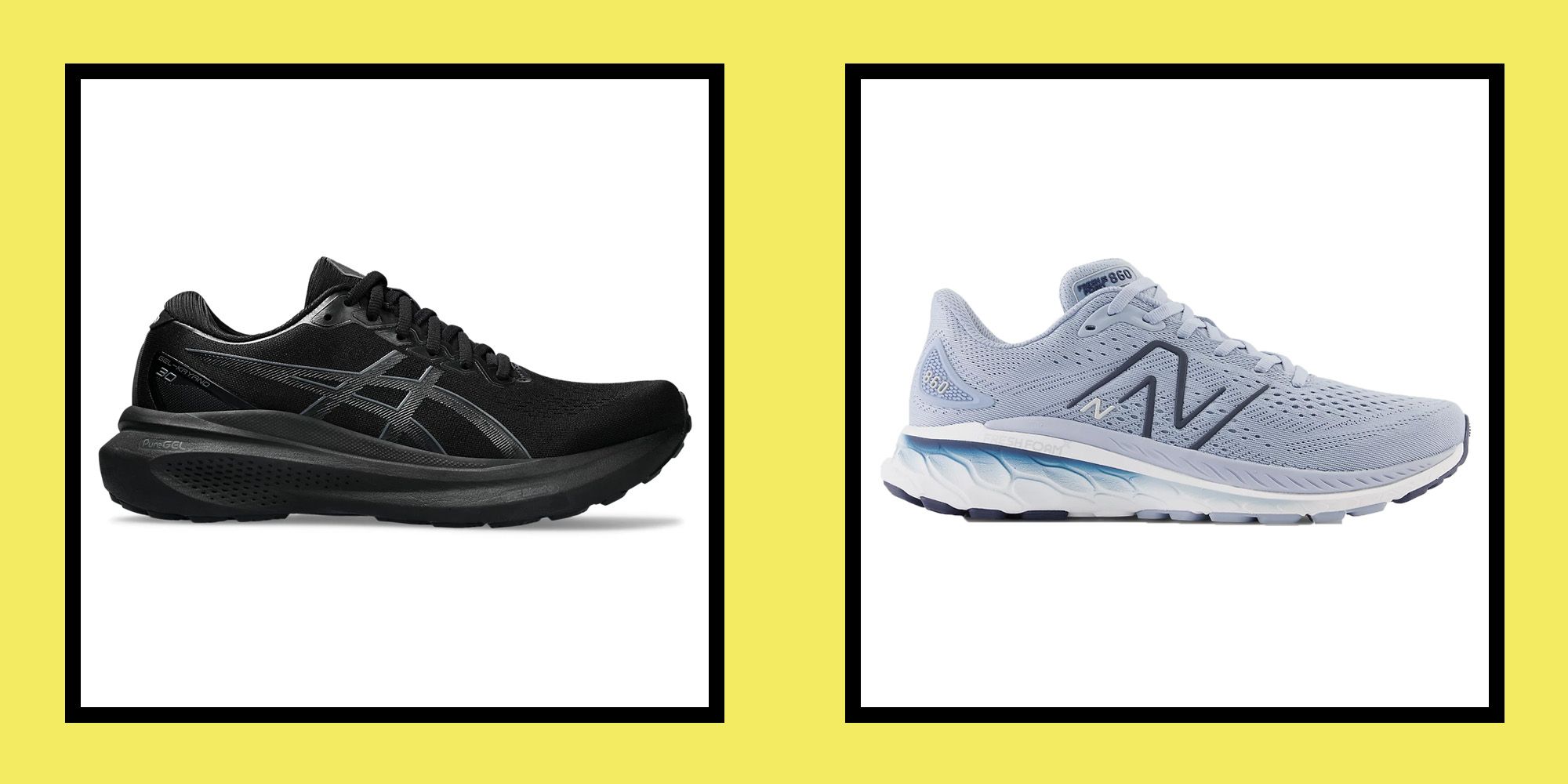
4. How often should I replace my running shoes?
Typically, running shoes should be replaced every 300-500 miles. However, if you notice decreased cushioning or increased discomfort, it’s time to invest in new shoes.
5. Are more expensive running shoes better?
Not necessarily. While expensive shoes often have advanced technologies and materials, the best shoe for you depends on your individual needs, foot type, and running style.
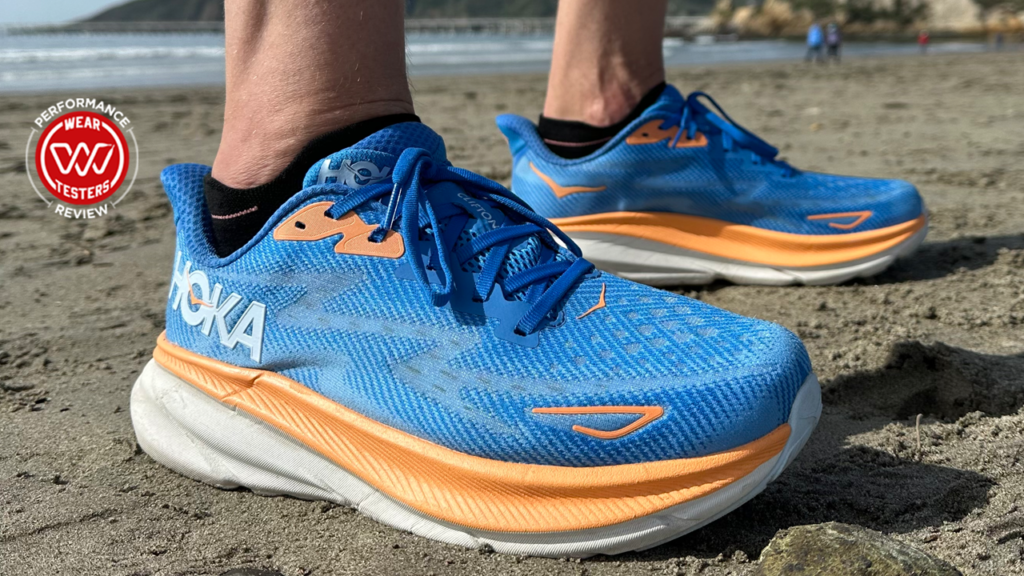
6. Is it possible to correct flat feet?
While you cannot completely “correct” flat feet, strengthening exercises and proper footwear can help manage symptoms and improve foot function, making running more enjoyable.
7. What should I look for in a running shoe if I have flat feet?
Seek shoes that provide excellent arch support, cushioning, and stability features. Consider your running style and the terrain you typically run on when selecting a pair.
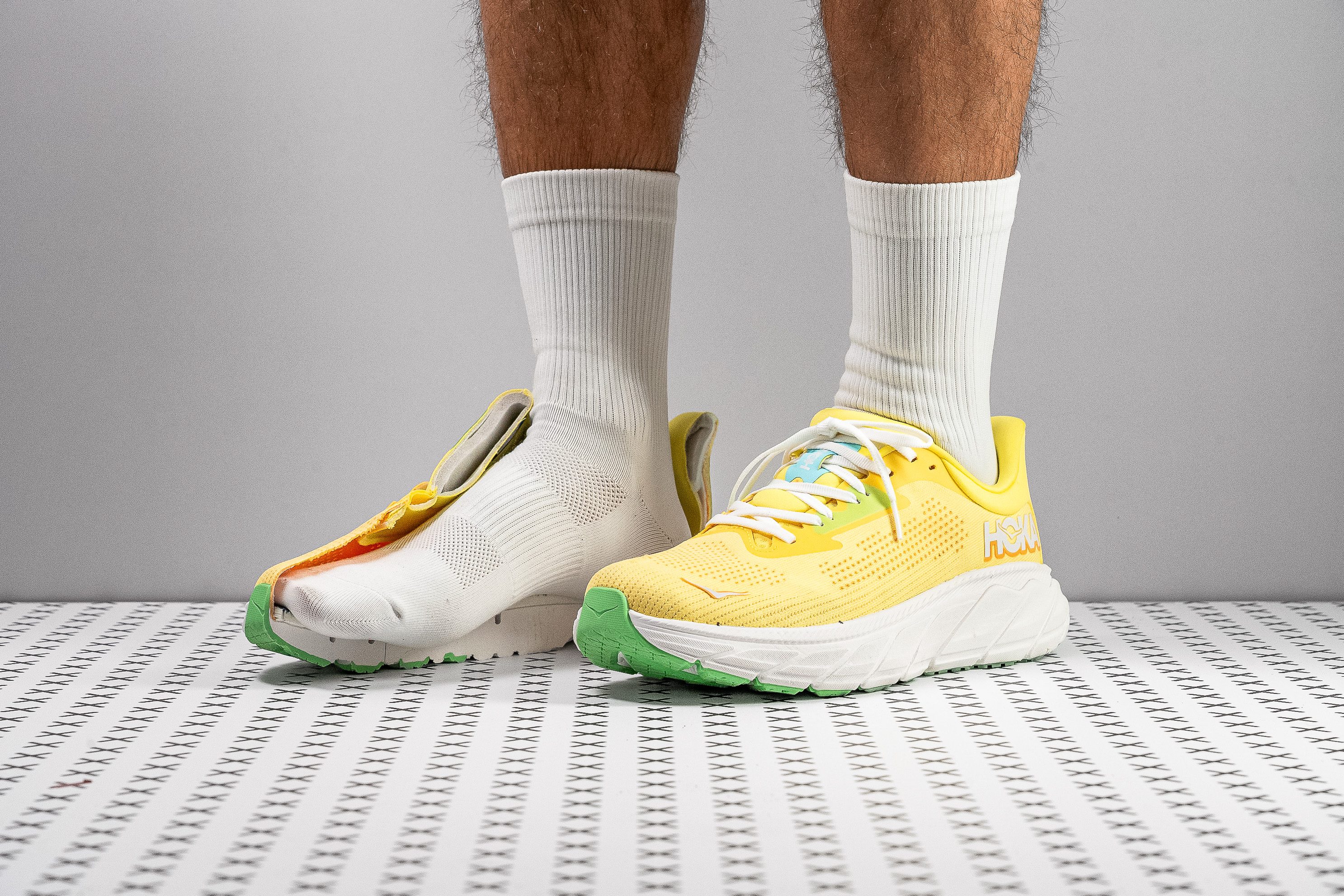
8. Can I wear regular shoes if I have flat feet?
While you can wear regular shoes, they may not provide the necessary support and comfort for flat feet. It’s advisable to wear shoes specifically designed for flat feet for better performance.
9. Do I need to break in my running shoes?
While some shoes may require a break-in period, many brands are designed to be comfortable right out of the box. However, it’s still wise to gradually increase the mileage on new shoes.
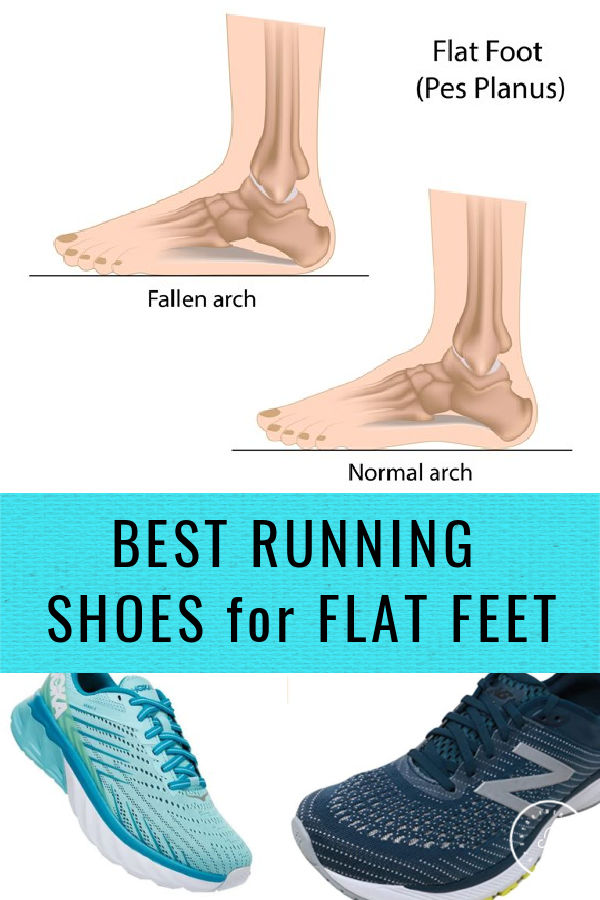
10. Are trail running shoes suitable for flat feet?
Yes, many trail running shoes offer support and cushioning suitable for flat feet. Ensure that you choose a trail shoe with stability features to help manage motion control.
Conclusion
Finding the right running shoes for men with flat feet is not just about style; it’s about comfort and performance. With the right shoes, along with proper care and attention to your foot health, you can enjoy running without the pain that often accompanies flat feet. So, lace up and hit the pavement with confidence!